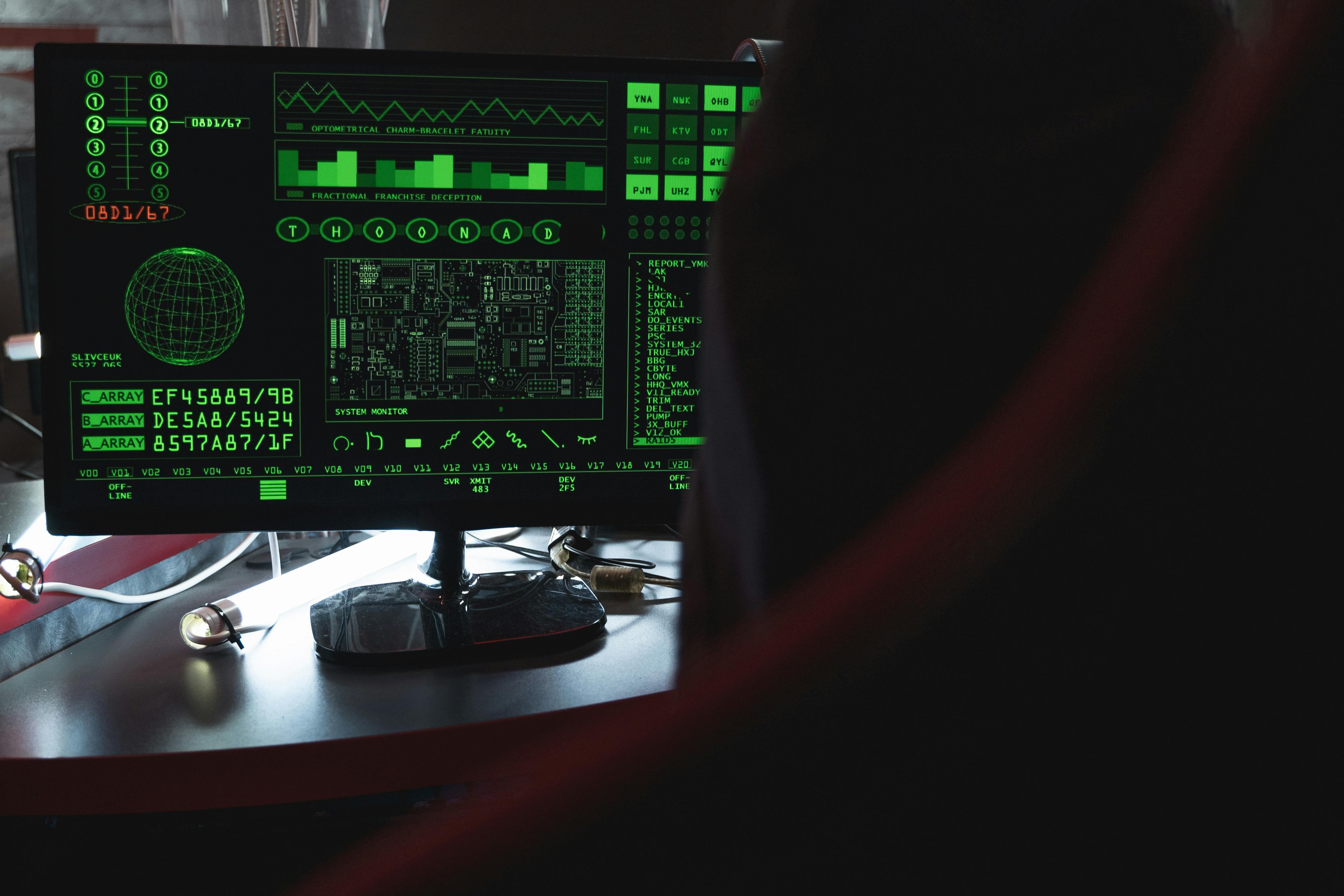Discover Essential Hacker and Internet Movies
🕓 Estimated Reading Time: 5 minutes
Overview
From the nascent days of personal computing to the pervasive connectivity of today's hyper-digital world, cinema has consistently mirrored humanity's evolving relationship with technology. The genre of hacker movies and internet-centric narratives has emerged as a distinct and influential subset of film, exploring everything from the thrilling exploits of digital outlaws to the profound philosophical implications of artificial intelligence and global networks. These films not only entertain but also serve as cultural touchstones, reflecting societal anxieties and aspirations concerning the burgeoning information age. They have shaped public perception of cybersecurity, data privacy, and the very fabric of our connected existence, often predating real-world technological advancements and ethical dilemmas. This exploration delves into the essential films that define this fascinating category, highlighting their impact as definitive digital age movies.

Background & Context
The cinematic exploration of computers and networks began long before the internet became a household term. Early portrayals often depicted computers as monolithic, inscrutable machines capable of both immense good and profound destruction. Films like 1983's *WarGames* were groundbreaking in their depiction of a teenage hacker accidentally stumbling upon a military supercomputer, showcasing the potential for global conflict to be triggered by a keyboard. This film, alongside others of its era, laid the groundwork for what would become the archetypal internet films, even when the internet itself was still largely confined to academic and military institutions. They captured the early fascination and fear surrounding burgeoning computer literacy.
As the 1990s ushered in the era of widespread internet access, the genre truly blossomed. Movies like *Hackers* (1995) popularized a vibrant, albeit often fantastical, subculture, defining a generation's aesthetic of rebellion against digital authority. Films such as *The Net* (1995) tapped into growing concerns about digital identity theft and data privacy, presenting chilling scenarios of individuals being erased or manipulated through online records. These early cyber thrillers explored themes of anonymity, digital warfare, and the vulnerability inherent in a world increasingly reliant on interconnected systems. They provided a nascent understanding of the power and peril of the burgeoning online world, often with dramatic flair that captivated audiences.
Implications & Analysis
The impact of these films extends beyond mere entertainment; they have significantly influenced public discourse on technology and its societal ramifications. Movies like *The Matrix* (1999) pushed the boundaries of tech cinema, blending philosophical inquiry with groundbreaking visual effects to explore themes of virtual reality, simulated existence, and the nature of consciousness in a digital realm. This film sparked widespread discussions about free will, artificial intelligence, and the blurring lines between the physical and digital worlds, profoundly impacting science fiction and broader cultural understanding.
Later productions, such as *The Social Network* (2010), shifted focus from traditional hacking to the social and ethical complexities of the digital age. This film, detailing the controversial origins of Facebook, illuminated the rapid rise of internet platforms and their profound impact on human connection, privacy, and economic power. It exemplified a new wave of internet films that examined the architects of the digital world and the ethical compromises involved in building vast online empires. These narratives often delve into the real-world consequences of technological innovation, including surveillance, data manipulation, and the erosion of personal freedoms. The critical reception of these films often highlights their ability to resonate with contemporary fears and fascinations.

Reactions & Statements
The portrayal of hackers and the internet in cinema has often been a point of contention and fascination for both the public and experts. Cybersecurity professionals frequently critique the technical inaccuracies in many films, though they acknowledge their role in bringing attention to complex digital issues. Conversely, these films have played a crucial role in demystifying aspects of technology for general audiences, prompting broader discussions about digital ethics and the need for cybersecurity awareness. As Daily Dot highlights in its coverage of this genre, 'These films, while often taking creative liberties, have undeniably shaped how the public visualizes hacking and the internet' (Daily Dot, 2024).
Audiences have consistently responded to the genre's blend of suspense, intellectual challenge, and social commentary. The fascination lies in seeing the hidden world of code and data brought to life on screen, often with a dramatic flair that underscores the high stakes of digital conflicts. The critical and commercial success of notable tech cinema entries demonstrates a sustained public appetite for stories that grapple with the implications of an increasingly connected world. This engagement fuels further exploration of complex themes, pushing filmmakers to create narratives that are both compelling and thought-provoking.
'These films, while often taking creative liberties, have undeniably shaped how the public visualizes hacking and the internet.' - Daily Dot, 2024
What Comes Next
As technology continues to advance at an unprecedented pace, the landscape for future internet and hacker-centric films is ever-evolving. The rise of artificial intelligence, quantum computing, deepfakes, and increasingly sophisticated cyber warfare presents a rich new vein of narrative possibilities. Future cyber thrillers are likely to delve deeper into the ethical dilemmas posed by autonomous AI systems, the implications of pervasive surveillance, and the potential for digital realities to become indistinguishable from physical ones. The focus may shift from merely preventing data breaches to confronting scenarios where AI itself becomes a threat or an indispensable ally.
Moreover, the ongoing discussions around data ownership, privacy rights, and the influence of social media giants will undoubtedly inspire new stories that reflect contemporary anxieties. We may see more nuanced portrayals of online activism, decentralized networks, and the fight for digital freedom against powerful corporations or state actors. The genre will continue to reflect and influence how society grapples with the accelerating pace of technological change and its profound impact on human civilization.
Conclusion
The genre of hacker movies and internet films stands as a testament to cinema's enduring capacity to interpret and interrogate the world around us. From early explorations of nascent computer technology to complex narratives about artificial intelligence and digital ethics, these films have consistently captivated audiences by bringing the invisible world of data and networks to thrilling life. They are more than just entertainment; they are vital cultural artifacts that reflect societal anxieties, celebrate human ingenuity, and provoke thought about the profound implications of our interconnected existence.
As technology continues to shape our future, the relevance of these digital age movies will only grow, continuing to challenge our perceptions of reality, privacy, and the very nature of human interaction in an increasingly digitalized world. They remind us that while technology evolves, the fundamental human stories of conflict, discovery, and connection remain timeless.